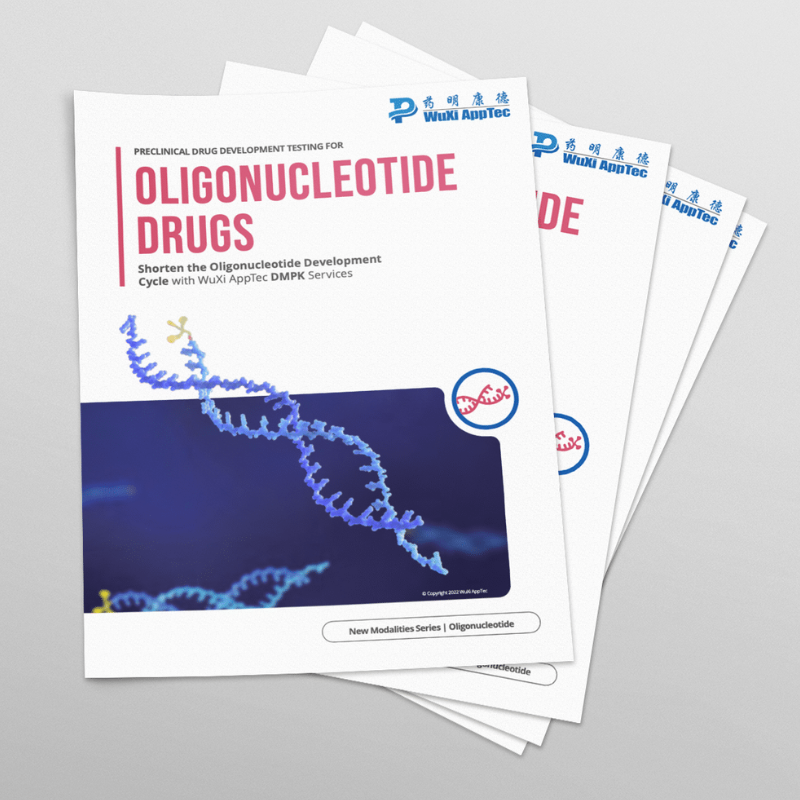ICP-MS
Expert ICP-MS Analysis
Get expert GLP sample analysis by inductively coupled plasma mass spectrometer from a dedicated testing partner. WuXi AppTec’s Bioanalytical Services Department (BAS) has decades of experience supporting global drug manufacturers and has analyzed numerous small and large molecule compounds for both preclinical and clinical needs. We look forward to developing a program to meet your unique requirements.

Download our ICP-MS Brochure
Need an experienced ICP-MS testing partner? We can help. Our testing services range from specialized assays to a comprehensive program that takes you from discovery through preclinical to IND and beyond.
Our ICP-MS Platform
Since 2013, WuXi AppTec’s BAS team has offered customers sample analysis by Inductively Coupled Plasma Mass Spectrometer under GLP. We have continued to build our analysis experience and expertise , which includes a Chinese patent for analysis of Cerium Oxide by ICP-MS. Talk to one of our experts today to discuss a testing program tailored to your regulatory and timeline needs.
Features of ICP-MS Analysis:
- Can analyze more than 80 elements (metallic, metalloid, and non-metallic)
- Can measure multiple elements in one run
- High sensitivity: LOQ at ppb (ng/mL) or ppt (pg/mL)
- Highly specific, with minimal interferences
- High magnitude (up to 11) dynamic range, can conduct macro/micro/trace analysis in the same run, with a small amount of samples
- Atmospheric sample injection, can interface with HPLC, CE, 1D/2D GE, GC and LA
- Simple dilution sample preparation approaches for whole blood/urine samples
Working Principles of ICP-MS
The key part of ionization in ICP-MS is a set of concentric (torch) tubes partly surrounded by a radio-frequency induction coil. When an (argon) gas flow is introduced through the outmost torch tubes, the argon gas can be turned into plasma with briefly discharged electrons and the radio-frequency magnetic field of the induction coil. The temperature of the inductively coupled plasma can be as high as 10,000 K. At this temperature, the analyte introduced through the plasma by the central tube will be atomized and ionized, and captured by the mass analyzer of the ICP-MS.
Differing from the conventional mass spectrometer, the ionization by ICP-MS involves very high ionization energy; the normal molecular structure of compound(s) will be dismantled, forming not molecular ions but atomic ions. As such, ICP-MS has been uniquely suitable for the qualitative and quantitative analysis of metallic and metalloid elements.

Applications of ICP-MS
- Environmental, earth sciences,
inorganic metallic material research - Bioanalysis of drugs that contain metallic/metalloid
elements, for pharmacokinetic and safety evaluation - Toxicology exposure assessment: for toxic elements
such as Arsenic (As), Cadmium (Cd), Lead (Pb) and
Mercury (Hg) in blood - Nutrition evaluation: for micro-amount elements such
as Iron (Fe), Copper (Cu), and Zinc (Zn) - Safety assessment: examples such as monitoring Aluminum
(Al) in patient after kidney dialysis, or the residue Gadolinium
(Gd) as imaging agent after MRI examination

FAQ
What is ICP-MS?
Inductively coupled plasma mass spectrometry (ICP-MS) is a kind of elemental sample analysis that uses an inductively coupled plasma to ionize a sample.
How does ICP-MS work?
ICP-MS breaks down the sample into identifiable atomic and small polyatomic ions. It can even detect metallic and even some non-metallic elements in liquid samples at milligram to nanogram concentrations.
Where is ICP-MS used?
ICP-MS analysis is used in a wide range of fields, including environmental research, earth sciences, bioanalysis of drugs, toxicology exposure assessments, nutrition evaluations, and safety assessments.
Need More than ICP-MS?
WuXi AppTec provides a full suite of bioanalytical testing services.